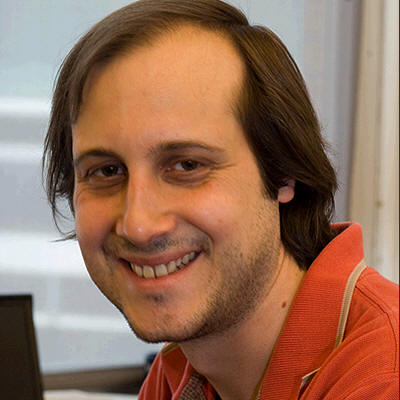Invited Speakers
Wednesday May 25 (3:00pm-4:00pm)
Scene and object recognition in context
Antonio Torralba

Recognizing objects in images is an active area of research in computer vision. Most of the algorithms for detecting objects perform an exhaustive search across all locations and scales in the image comparing local image regions with an object model. In the real world, objects tend to co-vary with other objects and scenes, providing a rich collection of contextual associations. Those contextual associations can be used to reduce the search space by looking only in places in which the object is expect to be and to increase performance, by rejecting image patterns that appear to look like the target object but that are in impossible places. In this talk I will present results on scene and object recognition obtained with a new database of more than 400 scene categories and more than 100 object classes. When hundreds of object categories become available new challenges and opportunities emerge. One of the challenges is to devise efficient and accurate algorithms able to handle hundreds or thousands of categories. But there are also new opportunities. On scene recognition, we can test the performance of global features to classify scenes into a very large number of possible settings covering most of the places encountered by humans. On the object recognition side, we can develop context based models that will benefit from the interactions between hundreds of object categories.
Bio: Antonio Torralba received the degree in telecommunications engineering from Telecom BCN in 1994, Spain and, in 2000, the Ph.D. degree in signal, image, and speech processing from the Institut National Polytechnique de Grenoble, Grenoble, France. He is an Associate Professor of Electrical Engineering and Computer Science at the Computer Science and Artificial Intelligence Laboratory (CSAIL), Massachusetts Institute of Technology (MIT), Cambridge. From 2000 to 2005, he spent postdoctoral training at the Brain and Cognitive Science Department and the Computer Science and Artificial Intelligence Laboratory, MIT. He is Associate Editor of the IEEE Transactions on Pattern Analysis and Machine Intelligence, and of the International Journal in Computer Vision. He received the 2008 NSF Career award, the best student paper award at the IEEE Conference on Computer Vision and Pattern Recognition (CVPR) in 2009, and the 2010 J.K. Aggarwal Prize from the International Association for Pattern Recognition (IAPR).
Thursday May 26 (900:10:00)
Autonomous Ocean Observation Platform Developments for Ocean Observation and Monitoring Tasks
Ralf Bachmayer, Memorial University of Newfoundland
Friday May 27 (8:30-9:30)
Visual Object Detection with Deformable Models and Beyond
Pedro Felzenszwalb
The problem of
detecting and localizing objects in images has
important applications in a wide range of areas, including in
robotics, image retrieval, medical image analysis, and HCI. One of
the major challenges in the area involves developing methods that can
effectively model variations in appearance that occur within a class
of objects. In this talk I will describe how deformable models can be
used to address this challenge. The framework leads to several
algorithmic problems and motivates new methods for learning models
from weakly labeled data. I will show how the approach can be used to
build object detection systems that are both highly efficient and
accurate, leading to state-of-the-art results. I will also outline
how we can handle more significant variations in the appearance of
objects by extending the framework of deformable models using rich
visual grammars.
Bio:
Pedro F. Felzenszwalb is an Associate Professor at the University of
Chicago. He received his PhD from MIT in 2003. His main research
interests are in computer vision, geometric algorithms and artificial
intelligence. His work has been supported by the National Science
Foundation, including a CAREER award received in 2008. He is
currently serving as a program chair for the 2011 IEEE CVPR. He is an
Associate Editor of the IEEE Transactions on Pattern Analysis and
Machine Intelligence and an Editorial Board Member for the
International Journal of Computer Vision. In 2010 he received the
IEEE CVPR Longuet-Higgins Prize for fundamental contributions to
computer vision. He also received the PASCAL Visual Object Challenge
"Lifetime Achievement" prize.
|